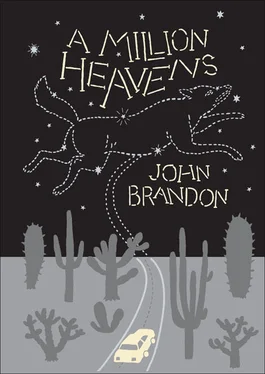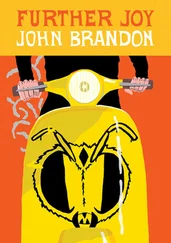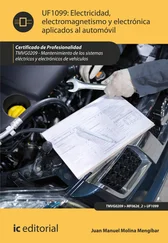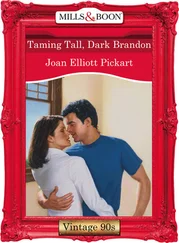Soren’s birthday came and went. He was a year older. He was aging, at least on paper. Soren’s father had not bought his son a gift. The bike he’d bought him for Christmas was still at home, in the utility closet behind the washer. He hadn’t gotten Soren a cake or even a card. He hadn’t mentioned the birthday to Gee. One of the nurses had stopped by and asked if Soren’s father wanted the staff to do anything, to gather and sing or bring up balloons, but he’d declined. Soren had missed his own birthday, and Soren’s father had to entertain the possibility that he might miss another. The two of them could be sitting in this same room with the same expressions on their faces a year from now. That wasn’t out of the question. It very much was the question. Soren could be in a coma a year from now and he could be in a coma a year after that.
Soren had been skinny before but now his legs were sticks. He’d gotten taller but weighed less than before the coma. Soren’s father hadn’t done a pushup in ages and his arms were feeble. He and his boy were shrinking. Soren’s father wondered how many birthday cards had come to the clinic for Soren. Maybe none. Maybe the only strangers still interested in him were the vigilers, and there were only about twenty of them left, the true believers, the zealots — or at least they wanted to be those things. Soren’s father had sold off another lunch truck, to the same guy who’d bought the first one. He didn’t like having a truck sitting outside the clinic waiting for him. Maybe he didn’t want to resume his route. Maybe he’d been sick of driving that fucking truck. Maybe he’d been sick of smoking cigarettes, sick of the smell of heat-lamp beef tips. Maybe he wanted to blow the cash from the trucks taking Gee out to fancy dinners. Maybe thinking about the future, tomorrow or next month or next year, was the most futile thing a person could engage in.
Soren’s father stood at the window of the clinic room looking out at the expanding desert instead of looking at his son, who’d had a haircut that day and didn’t look right. The haircut made him look older and dopey, and he was young and sharp. Soren’s father gazed out past the quadrant of the parking lot where the vigilers always sat, missing them a little despite himself, looking forward to Wednesday and their mute company. There was an auto body shop and a cell phone store. There was a vacant lot beyond the interstate where a hot-air balloon crew was sitting around munching on apples, waiting for tourists. Above everything was a blue sky, a sky the precise color of a pickup Soren’s father had owned when he was young, back when a blue sky meant something.
He sat on the bench at the piano, the gashed upholstery pinching the backs of his legs. He did not feel bound by time. He was free of the burden and crutch of seconds and centuries. He sat on the bench, his feet resting on the pedals instead of on the cold ground and his hands resting in his lap. There was no dust whatsoever on the piano. The air in Reggie’s tiny chamber was the purest he’d ever breathed. Reggie removed his shirt, something he’d often done when he wrote songs back when he was alive. He folded the shirt and rested it up on top of the piano.
He was at the mercy of the afterlife whether he surrendered the songs or not. To act like he wielded any leverage was delusional. Reggie told himself he wasn’t giving in because of the deteriorating living conditions, nor to squelch the shrill vibration in his brain, nor even because the solitude was too much for him, the lack of answers, the lack of everything — love, hunger, sleep. He was giving in because there was nothing noble about holding out. There was egotism and defiance in holding out, and probably even toughness, he could admit, but nothing truly noble. Reggie had been able to accept in life that he couldn’t have all the answers, and he would accept the same in death. He knew that the notion that one got what one deserved was childish and his obstinacy concerning relinquishing his songs had become a form of begging. Begging for answers about the day of his accident, on that straight, familiar road, answers about this new life that wasn’t a life at all and wasn’t new anymore. Reggie was going to wind up where he wound up. Someone had a plan for him and that plan was none of his business.
Reggie tried not to hold his breath. He raised his hands and let his fingers fall upon the keys and felt a great relief at acting rather than resisting action. He was a man, though a dead man, and what brought him peace was work. The notes were strong and Reggie was not rusty in his playing. The song danced out through his hands, the buzzing in his head subsiding, the notes filling the void that was Reggie’s world. He had never cried as a grown person and didn’t know how, but he felt the trials he’d endured swelling up in his heart. It was hard not to play too fast. He was finally complaining. The song was a lament. The little room without a ceiling had the most robust acoustics Reggie had ever heard. It felt like he was composing the song as he went, though that could not have been true. He’d been writing the song all along in a secret part of his brain, the part where he’d hidden Cecelia from himself for all that time. As the song opened up before Reggie he wondered what Cecelia would think of it. He wished she could hear it. It was good, he knew. What he wanted was to see Cecelia frown at it, pleased.
She woke up groggy, her throat dry and stomach unsettled. Her mind was as quiet as a closed theater, but there was turmoil in her body, in her midsection and limbs. She felt like she’d been breathing something other than air all night. Cecelia had already gotten used to leaving her mother in bed, leaving her mother to deal with the morning on her own, but this morning she was pointedly thankful at being able to slip into clothes and swish some mouthwash and sneak out of the house unmolested. She felt like she hadn’t slept all night but she had.
It wasn’t until she was in her car, after pulling up onto the interstate and settling into the right lane as was her habit, that she realized she was humming. She wasn’t a person who hummed or whistled, but she was humming and not stopping. Maybe she wasn’t stopping because she wanted to know what the song was. She didn’t recognize it. It wasn’t a finished melody. She could hear notes in her head that corresponded to the notes she was humming. She could’ve stopped, but for some reason she wasn’t. She heard piano, fluttery at first but jostling into a song, and then suddenly decisive. She wanted to speak out but she didn’t. She kept her window closed. Cecelia had had songs stuck in her head before, but these notes were way inside, like trace amounts of lovely poison. They continued as she drove and drove, the sky getting clearer along with the music. The discomfort in her body was fading. Her stomach felt okay. Her head didn’t feel normal but it didn’t ache. The song sounded like it was being played on a very old piano, like a lot of the songs in the History of Music class Cecelia had dropped. This song wasn’t from History of Music. Cecelia had never heard it before. She’d never heard anything similar. She wasn’t humming anymore. It wasn’t necessary. Her throat was quiet and she heard the song all the more clearly.
During her first class, she could barely hear the professor. The song was getting louder and the noises from the outside were falling away. Cecelia found she could slow the song down in her mind, but she couldn’t stop it. It was either repeating or it had no end. Cecelia was grinding her teeth. She wished she had gum. There was a pop quiz and Cecelia wrote her name on the paper and handed it back in without answering any of the questions. The forced heat in the classroom was making her eyes water and her sinuses tingle.
Читать дальше












